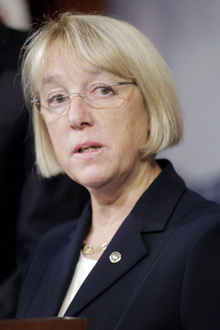It was a moment the literacy education community had been hoping to see for years. The U.S. Senate’s Health, Education, Labor, and Pensions (HELP) Committee voted unanimously Thursday to approve the bipartisan redraft of the ESEA reauthorization bill entitled the Every Child Achieves Act of 2015, designed to rectify the many shortcomings of the prior reauthorization, No Child Left Behind (NCLB).
The approved bill will now go to the Senate floor for additional debate and amendment before a vote by the full Senate. To pass, it will require 60 yea votes, after which it will move to the conference committee for further action.
Given the many interests and constituencies concerned with K-12 education, especially where the nation’s neediest students and school districts are concerned, the bipartisan ethos displayed in the committee’s work to get the bill reported out was truly extraordinary, a stunning change from the dysfunctional party politics of recent years.
 |
| Sen. Lamar Alexander (R-TN) |
Much of the credit must go to the leadership of the chairman, Sen. Lamar Alexander (R-TN), and the ranking member, Sen. Patty Murray (D-WA). During the markup the Committee considered 57 amendments and approved 29 of them, most of which were proposed by democrats.
Commenting on the vote, Alexander explained the consensus reached by the committee came down to, “continue [NCLB’s] important measurements of academic progress of students but restore to states, school districts, classroom teachers and parents the responsibility for deciding what to do about improving student achievement.”
Murray added that the vote was “another positive step toward fixing the badly broken No Child Left Behind law and ensuring that all students have the opportunity to learn, no matter where they live, how they learn, or how much money their parents make.” She pledged to continue the bipartisan work to get the new law “across the finish line.”
LEARN and the Cassidy Amendments
Part D of Title II of the approved bill, added in the redraft, sets forth provisions from the LEARN Act—Literacy Education for All, Results for the Nation—a major literacy initiative long championed by Murray and supported by many education groups.
LEARN provides resources to improve reading and writing instruction in the regular classroom, reducing the number of children who fail to learn how to read. It directs resources to schools with large numbers of children living in poverty. Under LEARN, schools make local decisions on how to improve reading and writing instruction for groups most in need of help in their school buildings. The act also provides funding to improve instruction using evidence based techniques, and includes supports for teachers and principals.
Concerns arose during the markup process over amendments put forth by Sen. Bill Cassidy (R-LA), one of which would have added language to Part D of Title II specifically focused on children with dyslexia and other learning disabilities, and another of which would have deleted LEARN from the redraft altogether.
To persuade the committee against adoption of the Cassidy amendments, Advocates for Literacy, a coalition of more than 50 organizations including ILA, forwarded a joint letter to Alexander and Murray opposing any such change.
 |
| Sen. Patty Murray (D-WA) |
Murray referenced the Advocates’ letter in her exchange with Cassidy, pointing out such children are already covered under LEARN and that special language covering every conceivable learning disability is not warranted. The amendment was subsequently voted down. Cassidy withheld his proposed amendment to strike LEARN from the bill.
As it stands, the approved bill largely corresponds with the points taken in ILA’s board-approved position statement on ESEA Reauthorization issued last February.
Hard Work Ahead
Getting the bill to the floor is a major step, but more needs to happen before the bill becomes law. There is hard work ahead, as it is clear many senators on the Committee intend to continue pushing for additional changes they were willing to hold back on at this juncture to allow the bipartisan redraft to move forward.
Sen. Al Franken (D-MN), for example, indicated that he will work to add in language designed to address and support remedies for the bullying of Lesbian, Gay, Bisexual, and Transgender students.
Sen. Elizabeth Warren (D-MA) complained the bill does not live up to the legacy of the original ESEA, which aimed to help underprivileged children who were “underserved, mistreated, or outright ignored by public schools.” Warren said the bipartisan draft, as written, “falls far short,” as it “would allow states to take billions of dollars in federal grants without any assurance that they will do much for the children who need our help the most.” She promised to fight for changes that address these shortcomings once the bill goes to the floor.
Cassidy is not finished either. A passionate dyslexia advocate for personal reasons—one of his daughters is dyslexic—Cassidy sounded a conspicuously sour note in casting his vote to approve the bipartisan redraft, observing that “This bill doesn’t do diddly squat for 10 million kids with dyslexia.”
Dan Mangan is the Director of Public Affairs at the International Literacy Association. Previously, he was ILA’s Strategic Communications Director and Publications Director and launched the original Reading Today magazine and the blog now known as Literacy Daily. He is a veteran of commercial publishing, a former journalist, and an attorney.